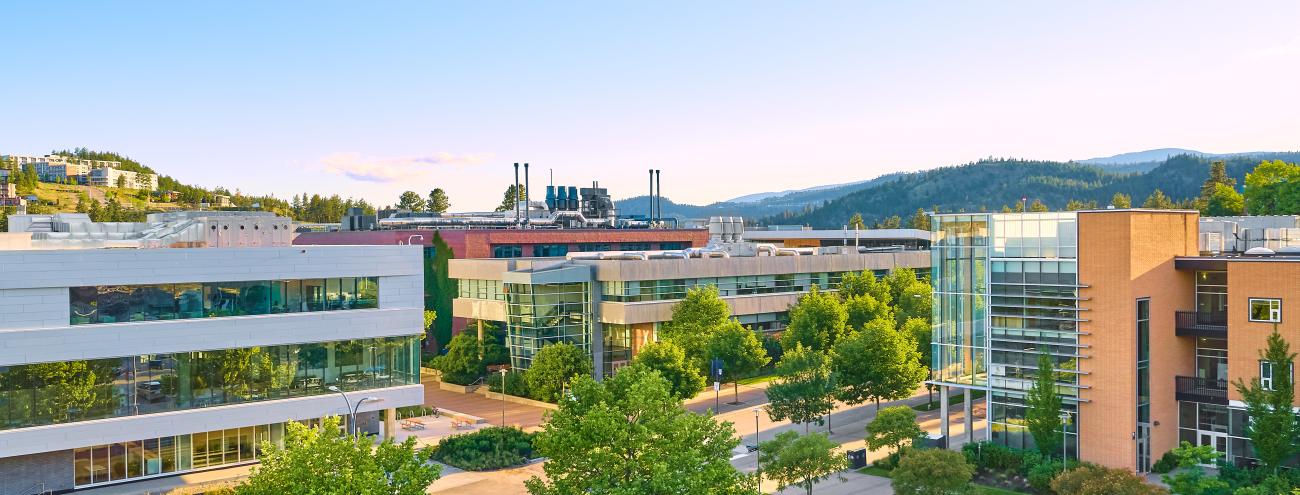
This project focuses on optimizing energy efficiency in UBC Okanagan’s legacy buildings through innovative and cost-effective modeling, improving the district energy system to cut greenhouse gas emissions and set a scalable example for sustainable building practices.
Interviewees:
- Klaske van Heusden, Assistant professor, School of Engineering
- Warren Hare, Professor, Dept. of Computer Science, Mathematics, Physics and Statistics
Q: How did your previous research or expertise lead to the development of energy efficiency modelling project?
Dr. van Heusden: This project was initiated by the Energy Team. I have been working on modeling and learning control since 2005. This project is very well aligned with work in my group on the interface of modeling and predictive control.
Dr. Hare: As a Mathematician, my background includes a wide variety of applications with a focus on how to optimize a modelled system. Dr. van Heusden brings a wonderful skillset in modelling and control systems to this project. The project is a wonderful example of interdisciplinary research in action.
Q: How does this project align with UBC Okanagan’s goals for sustainability and climate commitment?
Dr. Hare: The entire project hinges around reducing fuel consumption in UBCO’s HVAC system. I am very hopeful that this will make a lasting impact on UBCO’s climate commitment.
Q: What has been the most exciting or challenging aspect of this project so far?
Dr. van Heusden: It has been really exciting to see the contributions of our undergraduate students to this project, and to see how an opportunity to work on this challenging problem with concrete impacts on UBCO has motivated them to learn more about HVAC and to pursue job opportunities in this field.
Dr. Hare: We recruited a wonderful pair of undergraduate research assistances last summer. It was a pleasure to work with them, share some of my knowledge, and learn from their perspectives. The modelling and mathematics have presented many interesting challenges, and I look forward to unravelling the mysteries this project has brought forth.
Q: Given that many energy efficiency projects face challenges in scaling up from pilot phases to broader implementation, what steps will you take to ensure that the outcome of this project can be replicated or implemented across campus?
Dr. van Heusden: The goal of this project is to eliminate one of the main barriers to wide-spread optimization of energy efficiency of buildings. An important measure of success is the uptake of the technology by the Energy Team and their ability to apply the results to other subsystems of the UBCO DES.
Dr. Hare: Simple to understand solutions are key to success. This doesn’t mean solutions are simple to find. It means that after they are found, solutions need to be shared in a manner that is simple to follow. This is a great challenge in many research areas that both Dr. van Heusden and I have encountered before. We will use our past experiences to help train students and ensure the results have lasting impact.
Q: How do you envision this modelling approach impacting energy management practices beyond UBC?
Dr. Hare: One of the things a university should strive for is to lead by example. The modelling in this project will allow UBCO to demonstrate to the world how a bit of research can greatly improve outcomes.